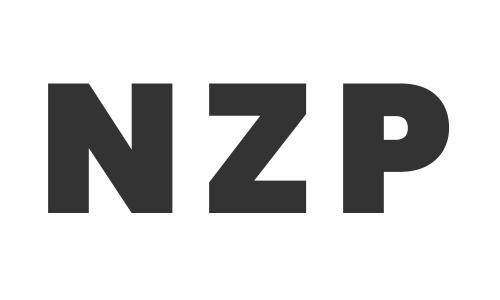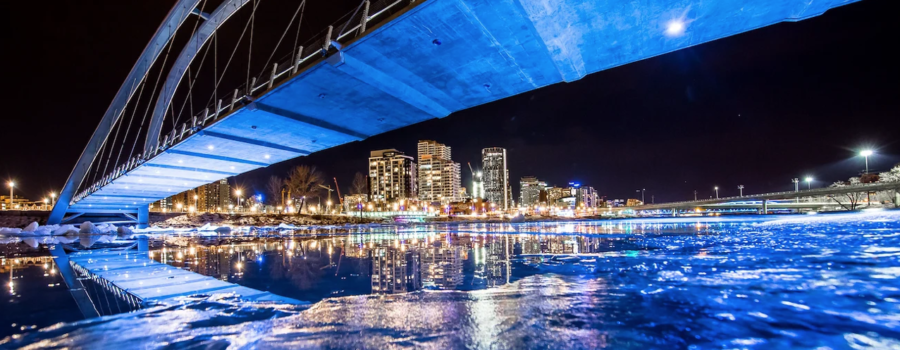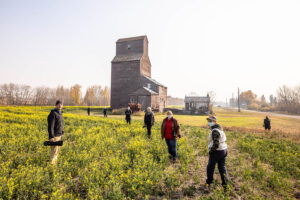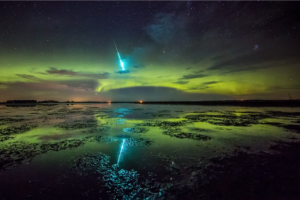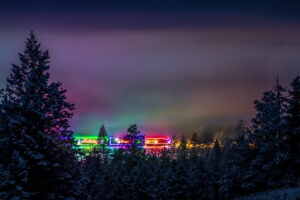THE BOSS OF LIGHT
The coolest part of shooting the city at night is that you aren’t a prisoner to light. During the day you spend your time figuring out how to set the camera to limit all the brightest brights, which sometimes makes you unable to get very creative. At night, as you are utilising slow shutter speeds and your tripod anyway, you have the options to let as little or as much light in as you wish. Expose for the highlights? sure. Expose for the shadows? Why not? Your shutter dial is the boss at night. Usually when shooting the city at night you are setting the Aperture at your lens’s sharpest point which is 6.3 to 11, anywhere in there really, and your ISO to a place that makes high quality images, so ISO 100 to 400. Once those are dialled in, it’s all about the shutter.
Now here’s the thing. Your light meter will lie to you. It’s dark, and light, but mostly dark, so the meter will be off. Always at night it will be off. Forget about it. Take a photo, look at it, then think to yourself, ‘Do I like the looks of this shot?’. If the answer is no, then adjust the shutter, take a shot and look again.
Because I know I’ll be editing the photo at home, I am always overexposing my night shots. I can always bring the highlights down, but lost darks are lost, so it’s better to over expose and have detail in the darks as a default.
White balance in the city is curious these days and depends on lots of things including the types of streetlights in your scene. The default answer is to shoot in RAW recording format and always have the ability to adjust white balance later. But it’s nice to see the shot looking not orange on the back of camera. So, the camera preset I use all the time is Incandescent (Nikon) or Tungsten (Canon), it wipes the oranges that collect in a long exposure and leave crisp blues.

THE EXTRA MILE
When I teach my workshops, I tell the students that to realize the vision you have in your head when you take the shot, you are required to finish the image in post production. (editing). The camera only sees a certain amount of light, but you have the ability to make the shot look like what you want it to look like using various techniques.
A camera can capture a certain amount of dynamic range (light ranging from highs to lows), but is limited by technology. When your eye sees the sames scene, you can see details in the lights as well as the darks at the same time. As a human, you are seeing in high dynamic range. You actually see 4+ times more degrees of light than your camera. You are able to make an image that sees more light by shooting with a technique called exposure bracketing. All good cameras have the ability to shoot bracketed photos. What is happening, is the camera shoots 3 or more consecutive shots using the same F-stop and ISO settings, but decreases/increases the shutter speeds from the originally set image that allows the camera to grab the extra highlights and lowlights that you couldn’t get by shooting a single shot. You then take these 3 photos to your favourite HDR software (Lightroom or Photomatix Pro are my favs), and combine them to your desired affect.
Panorama photos are a great way to see past the capabilities of your current equipment. You want a super wide lens? Simply shoot consecutive overlapping shots and combine them in editing later too. For extra points, combine a HDR panoramic sequence! hah!
Long exposures are the hallmark of night photography, but try shooting extremely long shots to see what happens with car light trails, clouds and building exhaust. It’s a ton of fun once you get the hang of it.





NATURE AND THE CITY
Paying attention to nature when shooting the city will always net you incredible photo opportunities. I spend much time watching the lunar cycles, aurora science, sunrise times and current weather. I also spend a lot of time out when no one else is willing to, like late at night or in extreme cold temps. Suns and Moons, rises and sets make the city look awesome. Aurora even more so, but are very rare to see over the bright city. Location matters too. There are many public spaces with incredible overlooks for any of these photo ops!




WORKSHOPS
I teach a variety of workshops that feature Calgary prominently, including Beginner DSLR, Intermediate Creative, Lightroom editing and more.
For all of my workshops, Click here to see all my current classes!



